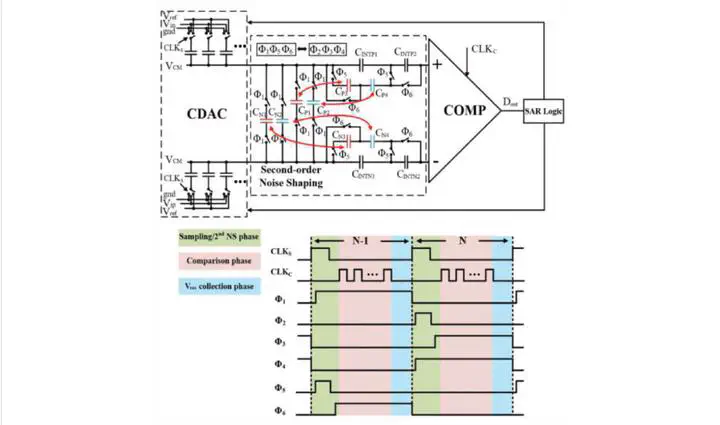A Second-Order Noise-Shaping SAR ADC for Biomedical Sensor Applications

Abstract
This paper proposes a low-power, area-efficient, and high-precision fully passive second-order noise-shaping (NS) successive approximation register (SAR) analog-to-digital converter (ADC) for a portable multi-channel biosignal recorder to detect abnormal action potentials in epilepsy. The proposed fully passive noise-shaping technique achieves a second-order noise transfer function (NTF) using only switchedcapacitor and a single-input-pair comparator, resulting in significant benefits in power consumption and accuracy. The power consumption is further reduced and the circuit area is minimized by employing a split-segmented capacitor digital-toanalog converter (CDAC) array. The proposed second-order NS SAR ADC is implemented using a 180 nm CMOS process with an area of 0.3×0.28 mm2. Simulation results show that the circuit consumes 86μ W at a 1.2 V supply voltage when the sampling rate is 10MS/s. It achieves a signal-to-noise and distortion ratio (SNDR) of 92.66 dB, an effective number of bits (ENOB) of 15.1bits, a bandwidth of 80 kHz, a Schreier figure of merit (FoMs) of 182.3 dB, and a Walden figure of merit (FoMw) of 15fJ/conv.-step.